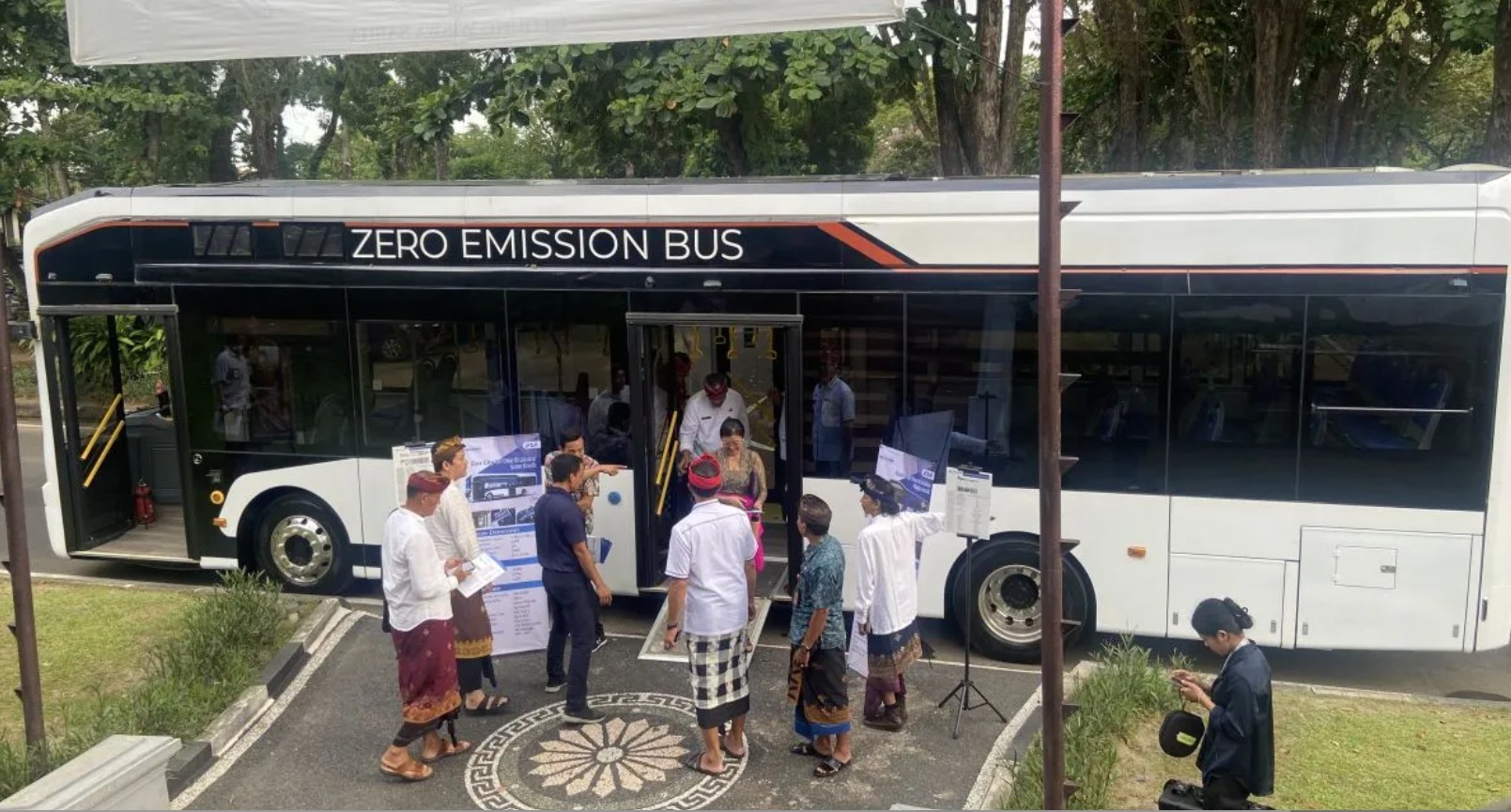Bali Provincial Government has launched a pilot program for Trans Metro Dewata (TMD) electric buses, marking the first step toward a greener public transportation system.
The trial service is open to the public free of charge for one month, running along the route Kuta Central Parking – I Gusti Ngurah Rai International Airport – Nusa Dua.
The 25–30 passenger buses are seen as the forerunners of a cleaner and more efficient fleet. Bali’s long-term plan is to ensure that by 2028, all Trans Metro Dewata buses will be fully electric, in line with the island’s sustainable development goals in transportation.
Initial trial phase
Head of the Bali Transportation Agency, IGW Samsi Gunarta, explained that for now, only one electric bus is operating with support from PT Kalista.
The pilot project aims to evaluate real operational conditions, including the challenges and technical requirements of running battery-powered public transportation on the island.
“During trial periods we usually make it free of charge, and this time it will be free for one month because everything needs to be tested,” Gunarta said in Denpasar on Monday.
Gunarta further noted that the experience gained during the trial would be valuable for operators before the buses are fully deployed.
“This is so that operators can learn how to use the electric bus, identify where the problems are, and understand what needs attention. That way, by 2028 when all buses operated by the Bali Provincial Government are electric, they will already have the necessary experience,” he explained.
The 6B Corridor, connecting Kuta Central Parking – Ngurah Rai Airport – Nusa Dua, was specifically chosen for the trial. In addition to being a busy route with high mobility, it already has EV charging stations to support operations.
The government hopes the introduction of electric buses on this strategic route will help familiarize both locals and tourists with the new transport system.
Public engagement
In terms of specifications, the electric buses are nearly identical to the existing Trans Metro Dewata fleet, with the only difference being the energy source.
With a similar design and passenger capacity, the public is expected to easily adapt once the transition to electric buses becomes permanent. The Bali government is encouraging the public to take advantage of this trial period.
“People should use this opportunity, because later they’ll also need to know what it’s like to ride an electric bus. Going forward, by 2028 we have a target to replace all Trans Metro Dewata buses with electric ones, since the current fleet will reach the end of its service life by then,” Gunarta added as reported from AntaraBali.
Apart from giving passengers a new experience, the trial will also provide important data for the government regarding passenger loads, travel patterns, and infrastructure readiness.
Expansion to electric taxis
Beyond buses, Bali is also preparing to introduce electric taxis, which are expected to gradually roll out starting in 2026. This program will be supported by the Bali Development Fund, which will provide financing schemes so that transportation cooperatives can participate in procuring eco-friendly vehicles.
“This is one of the options we have prepared, including a financing system, so that transport cooperatives can enter into business agreements with the Bali Development Fund,” said Gunarta.
Through this initiative, the Bali government reaffirms its commitment to sustainable development while supporting carbon emission reduction in the transportation sector.
The presence of electric buses is expected to mark the beginning of a shift in mobility patterns, steering Bali toward a modern, efficient, and environmentally friendly public transport system.
Sources: Bisnis.com, Antara Bali
Feat Image : AntaraNews/Ni Putu Putri Muliantari

